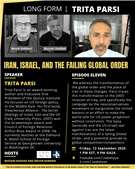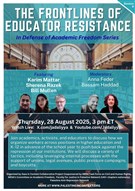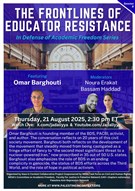[The following list is a compilation of the reports, statements, and other materials featured on the Jadaliyya Reports Page this past week.]
NGO Conference Calls for Regional Human Rights Reform The Egyptian Initiative for Personal Rights reports on the result of a February NGO seminar focused on strategy for human rights reform throughout the Arab world.
Month-by-Month Summary of Developments in Syria (Updated) International Crisis Group issues a monthly "Crisis Watch" report on Syria. These briefs are compiled here, showing the progression of the Syrian conflict.
Concern Over Arrest of Human Rights Defender Zainab Al-Khawaja Front Line Defenders condemns the arrest and detenion of Bahraini activist Zainab Al-Khawaja, who was arrested on February 27 during a peaceful sit-in in front of the Royal Palace in Al Qudaybiyah, and whose appeal on another similar charge was subsequently denied.
Doctors Without Borders: Humanitarian Aid Cannot Be Co-Opted into Somalia Stabilization Program Doctors Without Borders warns against discussions in the UN Security Council that could result in the humanitarian assistance being integrated into the broader military campaign against opponents of the Somali government.
The Turkel Report: A Preliminary Analysis A group of human rights organizations urge the international community to demand Israeli compliance with the recommendations of the Turkel Committee, a group established in June 2010 to investigate the legality of the Israeli maritime blockade in Gaza.
Letter Concerning the UAE "Blacklisting" of Dr. Kristian Coates Ulrichsen The Committee on Academic Freedom of the Middle East Studies Association addresses the Minister of Foreign Affairs of UAE with their concerns over the Dr. Ulrichsen`s denial of entry to the UAE, where he was to present his paper, “Bahrain’s Uprising: Domestic Implications and Regional International Perspectives,” at a scholarly conference.
Open Letter from Family of Jailed Palestinian Cartoonist Mohammed Saba`na The Committee to Protect Journalists provides an update on the status of Mohammed Abdel Ghani Saba`na, a Palestinian cartoonist arrested on February 16, but whose detention has now been extended twice. Following the update is a letter from Saba`na`s family appealing for assistance from the international community in securing their son`s release.
Call for Urgent Action: Jordanian Held Incommunicado in Saudi Arabia Amnesty International calls for international pressure on the Saudi government for the release of Khalid al-Natour, a Jordanian citizen and member of the Herak political reform movement, who was arrested in December 2012 without reason in Saudi Arabia.
Brooklyn College, BDS, and Palestinian Rights In light of the debate over a BDS event held at Brooklyn College last month, the Palestinian Campaign for the Academic and Cultural Boycott of Israel addresses two common criticisms of the BDS movement: first, that BDS does not take a position on a one or two state solution, and really just seeks to destroy Israel; and second, that BDS targets Israeli academics and is thus against academic freedom, and worse, is racist.
Concern Over Barring of International Observers from Trial Against Peaceful Activists in UAE The Alkarama Foundation reports on the refusal to allow representatives from their organization and Amnesty International from observing the trial of ninety-four activists accused of establishing an organization seeking to oppose the UAE system and seize power.
![[Image from jadaliyya.com]](https://kms.jadaliyya.com/Images/357x383xo/ReportsRoundup.jpg)

















